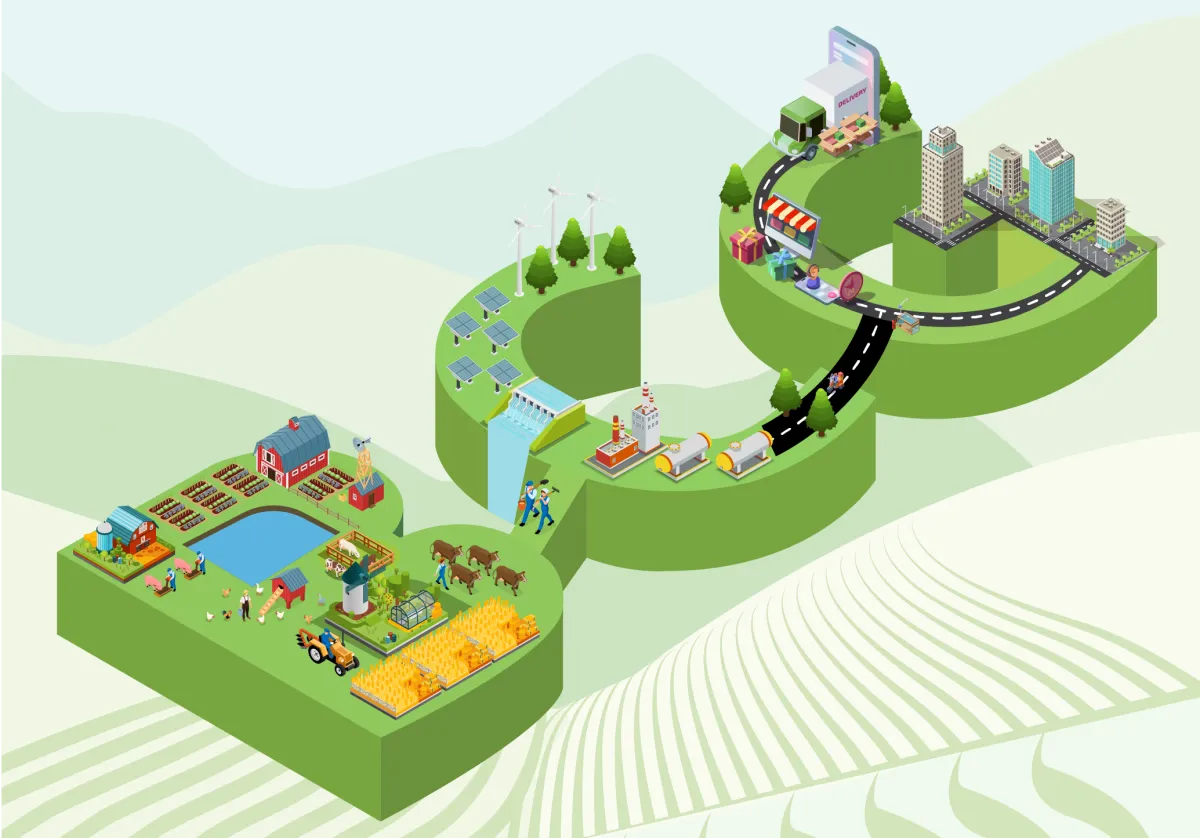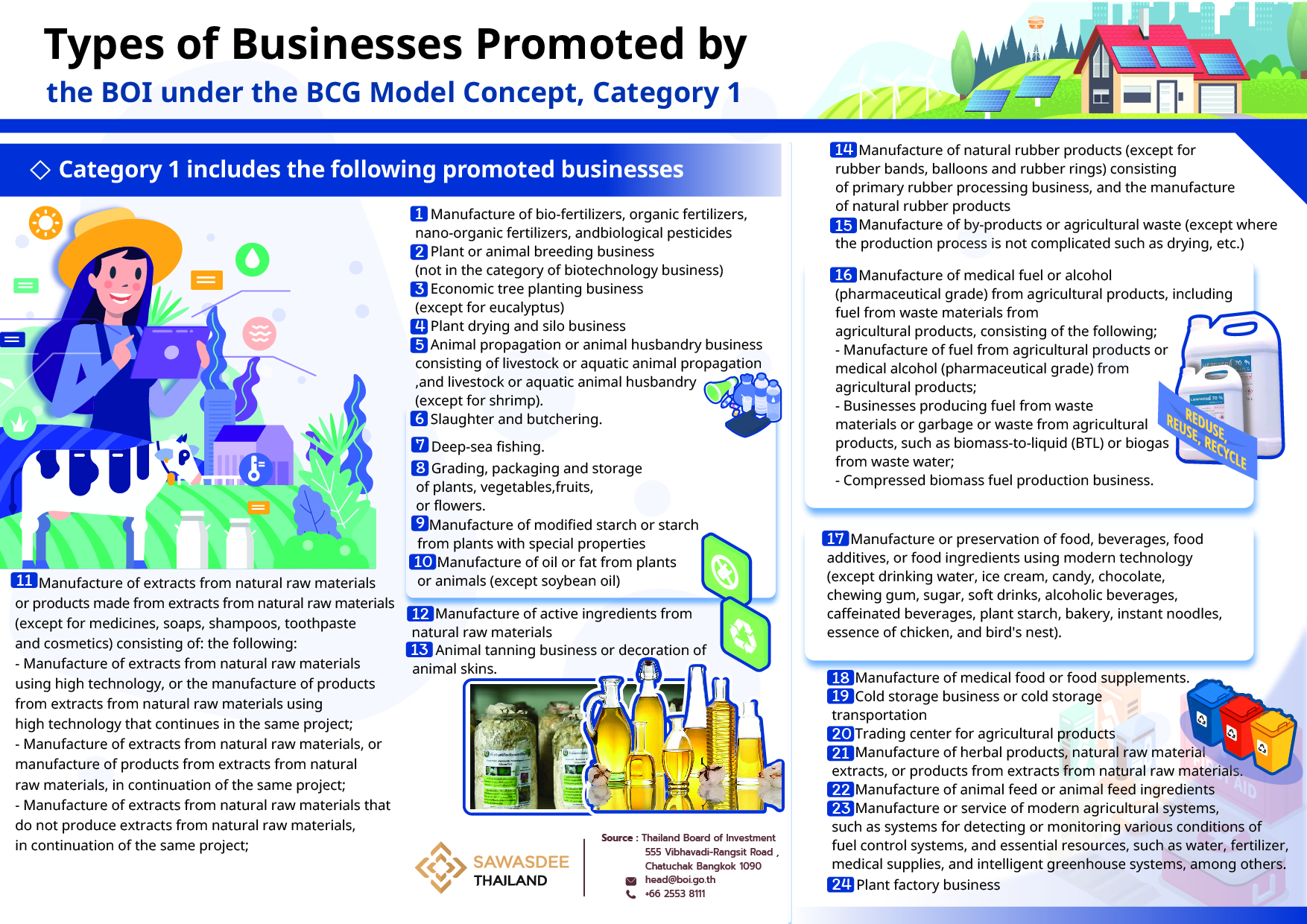
To encourage businesses that will contribute to better environmental conditions in Thailand, the Office of the Board of Investment (BOI) is promoting a new economic model called "BCG," or Bio-Circular-Green. Category 1 deals with the following types of promoted businesses:
1. Manufacture of bio-fertilizers, organic fertilizers, nano-organic fertilizers, and biological pesticides;
2. Plant or animal breeding (not in the category of biotechnology business);
3. Economic tree planting(except for eucalyptus);
4. Plant drying and silos;
5. Animal propagation or animal husbandry, consisting of livestock or aquatic animal propagation, or livestock or aquatic animal husbandry (except for shrimp);
6. Slaughter and butcher businesses;
7. Deep-sea fishing;
8. Grading, packaging, and storage of plants, vegetables, fruits, or flowers;
9. Manufacture of modified starch or starch from plants with special properties;
10. Manufacture of oil or fat from plants or animals (except soybean oil);
11. Manufacture of extracts from natural raw materials or products made from extracts from natural raw materials (except for medicines, soaps, shampoos, toothpaste and cosmetics), consisting of the following:
- Manufacture of extracts from natural raw materials using high technology, or the manufacture of products from extracts from natural raw materials using high technology that continue in the same project;
- Manufacture of extracts from natural raw materials or manufacture of products from extracts from natural raw materials that are a continuation of the same project;
- Manufacture of extracts from natural raw materials that do not produce extracts from natural raw materials.
12. Manufacture of active ingredients from natural raw materials;
13. Animal tanning business or decorations made with animal skins;
14. Manufacture of natural rubber products (except for rubber bands, balloons, and rubber rings), consisting of primary rubber processing and the manufacture of natural rubber products;
15. Manufacture of by-products or agricultural waste (except where the production process is not complicated, such as drying etc.);
16. Manufacture of medical fuel or alcohol (pharmaceutical grade) from agricultural products, including fuel from waste materials or waste from agricultural products, consisting of the following:
- Manufacture of fuel from agricultural products or medical alcohol (pharmaceutical grade) from agricultural products;
- Production of fuel from waste materials or garbage or waste from agricultural products (such as biomass to liquid (BTL) or biogas from waste water);
- Compressed biomass fuel production.
17. Manufacture or preservation of food, beverages, food additives, or food ingredients using modern technology (except drinking water, ice cream, candy, chocolate, chewing gum, sugar, soft drinks, alcoholic beverages, caffeinated beverages, plant starch, bakery products, instant noodles, essence of chicken, and bird's nest);
18. Manufacture of medical food or food supplements;
19. Cold storage and cold storage transportation;
20. Trading center for agricultural products;
21. Manufacture of herbal products from natural raw material extracts or products from extracts from natural raw materials;
22. Manufacture of animal feed or animal feed ingredients;
23. Manufacture or service of modern agricultural systems, such as systems for detecting or monitoring the conditions of fuel control systems and relevant resources, such as water, fertilizers, medical supplies, intelligent greenhouse systems, and more;
24. Plant factories.

Source : National Science and Technology Development Agency (NSTDA)
Tel : +66 2564 7000